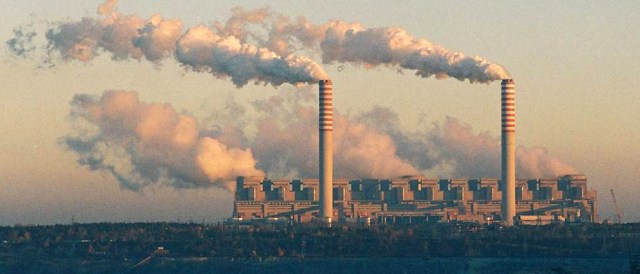Germany’s Energiewende has also impacted Poland and the Czech Republic, but these effects are rarely discussed or well-understood by German lawmakers. EU-wide energy policies are needed in order to ensure that Germany’s transition to renewables is permanent, sustainable, and fair to its neighbors.

A coal power plant in Poland. (Photo by Petr Štefek, CC BY-SA 3.0)
Head’s up on a new report about energy relations between Germany, Poland, and Czech Republic: Greening the Heartlands of Coal in Europe – Insights from a Czech-German-Polish Dialogue on Energy Issues.
I’m a co-author, so it’s not exactly an objective recommendation, but it is an excellent report by any measure.
There’s more linking these countries than meets the eye. Did you know that:
- these three countries produce 79 percent of the hard coal, 68 percent of the brown coal, and 55 percent of the electricity generated from coal in the EU, with just 26 percent of its population?
- CO2 emissions per head are higher in Germany than in Poland?
- in 2012 Poland became a net hard coal importer?
- according to a survey, 89 percent of the Polish people want more renewable energy?
- the only active uranium mines in the EU are in the Czech Republic, and the EU imports 98 percent of the uranium it consumes (in 2010 it was 85 percent for oil, 62 percent for gas and 40 percent for coal)?
- the CEO of the Czech energy giant ÇEZ and the Czech prime minister predicted a strong increase in German electricity prices and imports following the closure of seven nuclear power plants in Germany in the aftermath of the accident in Fukushima? In fact, the opposite occurred.
There’s more, too. One weakness of the Energiewende is that the impact of Germany’s transition on neighbors has hardly been addressed in Germany. In fact, the energy transition is already having discernible effects on grid stability and electricity markets in Poland and the Czech Republic. Yet, there’s inadequate consultation and coordination mechanisms in place. While Polish and Czech politicians are concerned about the consequences of the German energy transition for their energy systems, German decision makers are largely unaware of their misgivings. These gaps in information and communication give rise to misconceptions and political friction, often fed by misleading and sometimes populist media coverage.
One lesson to be drawn from Germany’s energiewende is that energy policy decisions taken in one EU member state affect other EU member states as well. For these reasons, the Heinrich Böll Foundation initiated a project entitled “The German Energy Transition in the European Context.” The point of departure is the conviction that the energy transition can only be implemented successfully if it is firmly embedded in a broader European context. More European coordination and cooperation is needed to avoid conflict and to create win-win situations across the continent and at home. The project’s goals are to promote a deeper understanding of the challenges and opportunities created by Germany’s energy transition and to encourage a solution-oriented dialogue about its effects on other EU member states.
Paul Hockenos is a Berlin-based journalist and author of the Going Renewable blog, where this post was first published.